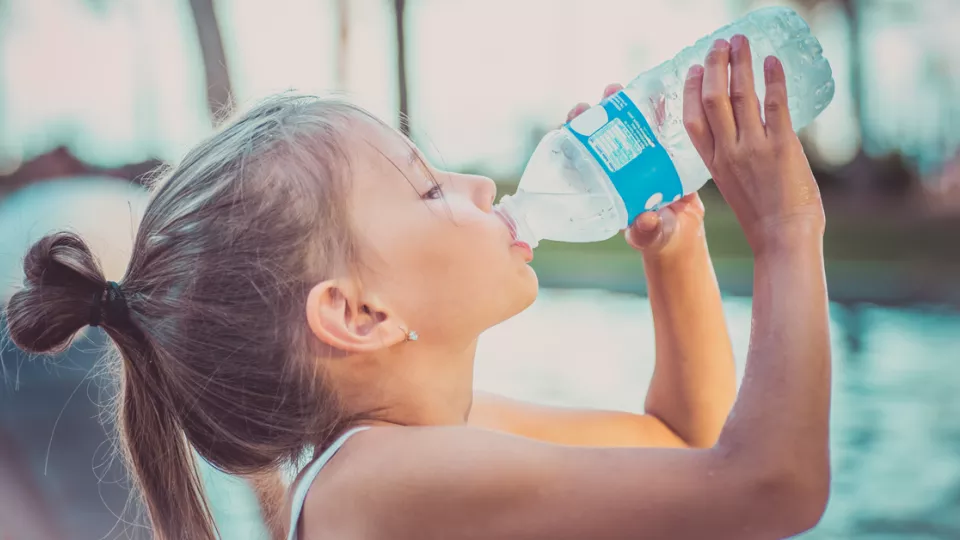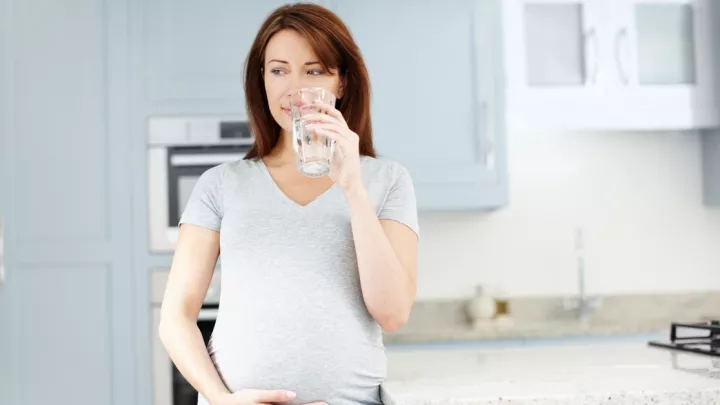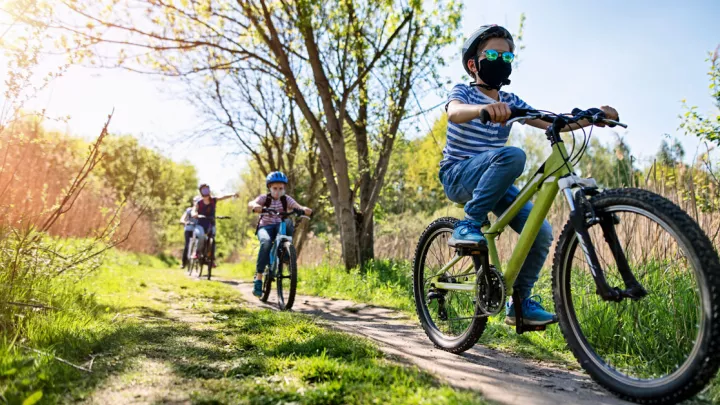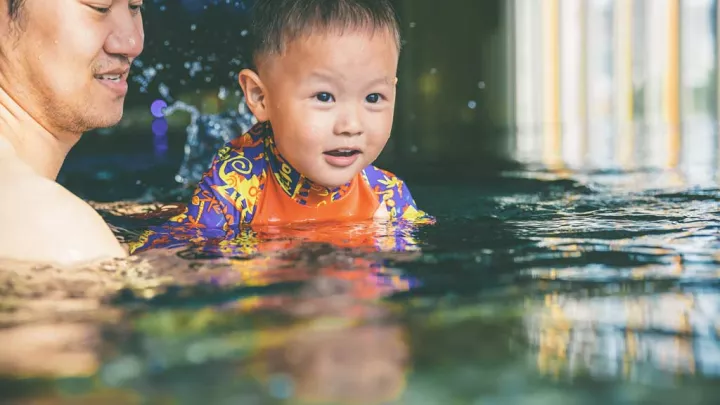
Heat-Related Illness in Kids: Know the Signs and Symptoms
Kids can seem like they have endless energy. But in hot weather, playing too hard and for too long can lead to heat-related illness—including its most severe and life-threatening form, heatstroke.
“Children’s bodies heat up three to five times faster than an adult’s,” explains Helen Arbogast, DrPH, MPH, CPSTI, Manager of Injury Prevention at Children’s Hospital Los Angeles. “They don’t have the ability to cool down as efficiently.”
Heat-related illness can happen to anyone, and it can come on quickly. Here’s how to spot the signs in your child—and how to prevent it from happening in the first place.
What is heat-related illness?
Prolonged exposure to high heat or humidity can make it difficult for the body to cool down normally. This causes heat-related illness.
There are three main types, ranging from mild to life-threatening:
- Heat cramps (mild)
- Heat exhaustion (severe)
- Heatstroke (life-threatening)
Left untreated, a mild form can quickly lead to a more severe form. Treat any heat illness in your child as soon as you see the signs. Teach your kids to spot these signs, too! They should never try to “tough out” these symptoms.
1. Heat cramps
Cramps are often one of the first signs of heat-related illness. Your child may have cramps in the legs, hands or stomach. Heat cramps can be painful. They are not dangerous on their own, but they are a sign your child needs to stop, cool down and hydrate.
If your child has heat cramps:
- Take your child to a cool area, out of the sun.
- Give your child water or a sports drink.
- Gently massage and stretch painful muscles.
- Call the doctor if cramps last longer than an hour. In most cases, a child should begin to feel better soon after cooling off.
2. Heat exhaustion
Heat exhaustion is the next level of heat-related illness. Treat heat exhaustion right away. If not treated, it can progress to heatstroke.
Signs of heat exhaustion include:
- Pale skin
- Heavy sweating
- Headache
- Nausea
- Dizziness or fainting
- Weakness
- Muscle cramps
- Low fever (but often no fever)
If your child has heat exhaustion:
- Take your child to a cool area.
- Have your child sip fluids—water or a sports drink.
- Loosen clothing and take off extra layers.
- Give a cool bath or shower, or put cool wet towels on your child.
- If your child faints, seek medical attention immediately.
- If symptoms do not improve after 30 minutes, call the doctor. If you think your child might have heatstroke, call 911.
3. Heatstroke
Heatstroke is the most severe form of heat-related illness. It occurs when the body’s temperature rises so fast that the body cannot cool down.
Heatstroke is a life-threatening emergency. Signs of heatstroke include:
- High fever (104 F)
- Hot, flushed skin
- Nausea and vomiting
- Confusion
- Extreme tiredness or drowsiness
- Losing consciousness (passing out)
- Fast pulse
If you think your child has heatstroke:
- Call 911 right away.
- Take the child to a cool area.
- Remove excessive clothing.
- Sponge the child down with cool water, or mist lightly with a garden hose or spray bottle.
- Have the child lie down with feet slightly elevated.
Tips for prevention
The best strategy is to prevent heat-related illness in the first place. Dr. Arbogast offers this advice for kids and teens on hot days:
- Stay indoors. Avoid peak sun hours (10 a.m. to 4 p.m.) and plan outdoor play for earlier in the morning or later in the day.
- Drink water. “For every hour of play in warm temperatures, a child should drink at least 8 ounces of water,” Arbogast says. “Kids should not wait to drink until they feel thirsty.”
It’s best for children to drink water every 20 minutes during play. Be sure they drink water before and after activity, too. - Avoid energy drinks or other drinks with caffeine. These can lead to dehydration.
- Be careful with sports drinks. They contain a lot of sugar. In most cases, kids do not need them. Water is the best way to hydrate. If a child has heat cramps or heat exhaustion, a sports drink is OK to give.
- Take breaks in the shade. Teach kids from a young age to take frequent rest breaks on hot days.
- Wear lightweight, light-colored clothing. Limit clothing to one layer. If a shirt becomes soaked with sweat, change into a fresh shirt.
A word about kids and hot cars
Babies and children can heat up very quickly in a parked car on a hot day—leading to life-threatening heatstroke. Be sure to “look before you lock,” so you don’t accidentally leave your baby or child behind in the car.
Remember: When it comes to heat-related illness, prevention is the best medicine. And if you have any questions about heat-related symptoms in your child, call your pediatrician right away.


